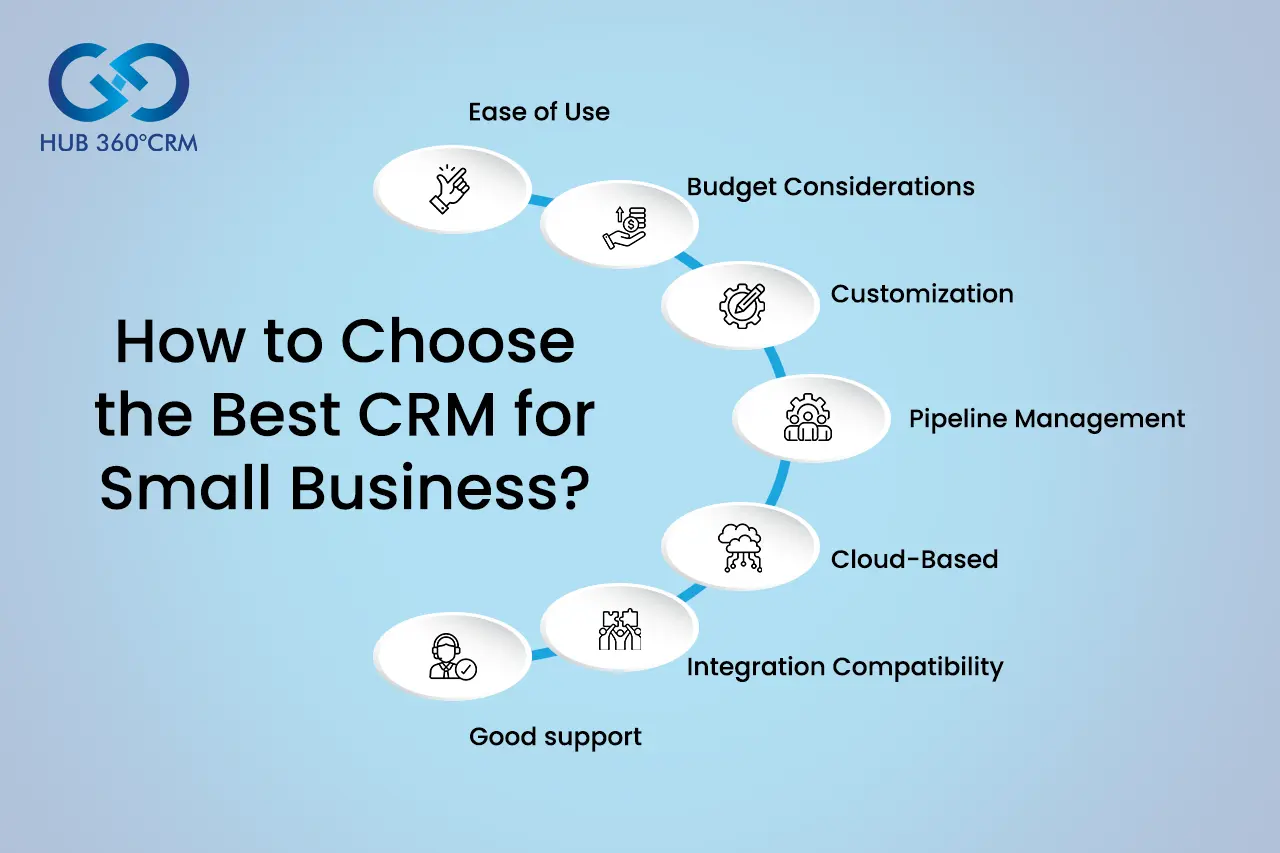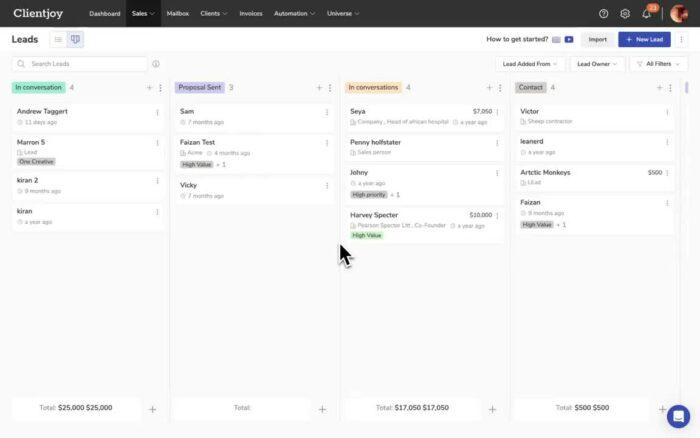The Ultimate Guide to the Best CRM for Small Tailors: Streamline Your Business and Delight Your Customers

The Ultimate Guide to the Best CRM for Small Tailors: Streamline Your Business and Delight Your Customers
Running a small tailoring business is a labor of love. You pour your heart and soul into crafting exquisite garments, ensuring every stitch is perfect, and every customer leaves feeling like royalty. But let’s be honest, the business side of things – managing clients, tracking orders, scheduling appointments, and handling invoices – can sometimes feel like a mountain you have to climb every single day. That’s where a Customer Relationship Management (CRM) system comes in. Think of it as your trusty assistant, helping you stay organized, build stronger relationships, and ultimately, grow your business.
In this comprehensive guide, we’ll delve into the world of CRM systems specifically tailored for small tailors. We’ll explore what a CRM is, why you desperately need one, and, most importantly, we’ll dissect the best CRM options available, considering features, pricing, and ease of use. Get ready to transform your business from a chaotic collection of notes and spreadsheets into a well-oiled machine, where every customer feels valued, and every order is a seamless experience.
What is a CRM and Why Do Tailors Need One?
Before we jump into the nitty-gritty of specific CRM systems, let’s establish a solid foundation. CRM stands for Customer Relationship Management. At its core, a CRM is a software solution designed to manage interactions with current and potential customers. It’s a centralized hub where you store all your customer data, track your communications, manage your appointments, and monitor your sales pipeline. Think of it as the digital brain of your business’s customer interactions.
Now, you might be thinking, “I’m a small tailor, I don’t need all that fancy technology.” But trust me, even a small tailoring business can benefit immensely from a CRM. Here’s why:
- Centralized Customer Information: No more scattered notes, lost phone numbers, or forgotten preferences. A CRM consolidates all customer information – contact details, measurements, style preferences, order history, and communication history – in one easily accessible place.
- Improved Customer Service: With all customer information at your fingertips, you can provide personalized and attentive service. You’ll remember their favorite fabrics, the style of their last suit, and any special requests they may have. This level of personalization fosters loyalty and encourages repeat business.
- Streamlined Order Management: Track orders from start to finish, manage alterations, set reminders for fittings, and ensure timely delivery. A CRM helps you stay organized and avoid costly mistakes.
- Enhanced Communication: Send automated appointment reminders, follow-up emails, and promotional offers. A CRM helps you stay in touch with your customers and keep them engaged.
- Increased Efficiency: Automate repetitive tasks, such as sending invoices and tracking payments. This frees up your time to focus on what you do best – creating beautiful garments.
- Data-Driven Decisions: Analyze customer data to identify trends, understand customer preferences, and make informed decisions about your business.
- Professionalism: Using a CRM makes you look professional, organized, and reliable in the eyes of your customers.
In essence, a CRM empowers you to build stronger relationships with your customers, improve your operational efficiency, and ultimately, grow your business. It’s an investment that pays off in the long run.
Key Features to Look for in a CRM for Tailors
Not all CRM systems are created equal. When choosing a CRM for your tailoring business, consider these key features:
- Contact Management: The ability to store and manage all customer contact information, including names, addresses, phone numbers, email addresses, and social media profiles.
- Order Management: A system for tracking orders, including order details, measurements, fabric selections, style preferences, alteration requests, and delivery dates.
- Appointment Scheduling: A calendar feature for scheduling appointments for consultations, fittings, and deliveries.
- Communication Tracking: The ability to track all communications with customers, including emails, phone calls, and SMS messages.
- Email Marketing: Tools for creating and sending email newsletters, promotional offers, and appointment reminders.
- Reporting and Analytics: The ability to generate reports on sales, customer behavior, and other key metrics.
- Integration with Other Tools: The ability to integrate with other tools you use, such as accounting software, payment gateways, and e-commerce platforms.
- Customization: The ability to customize the CRM to fit your specific business needs.
- Mobile Accessibility: The ability to access the CRM from your smartphone or tablet.
- User-Friendly Interface: A simple and intuitive interface that is easy to learn and use.
These features will help you streamline your operations, improve customer service, and boost your bottom line.
Top CRM Systems for Small Tailors: A Comparative Analysis
Now, let’s dive into the best CRM systems specifically designed or well-suited for small tailoring businesses. We’ll evaluate each system based on its features, pricing, ease of use, and overall suitability for tailors.
1. Zoho CRM
Zoho CRM is a comprehensive CRM system that offers a wide range of features at a reasonable price. It’s a popular choice for small businesses due to its versatility and affordability.
Key Features for Tailors:
- Contact Management: Robust contact management capabilities, allowing you to store detailed customer information.
- Sales Pipeline Management: Helps you track leads and manage the sales process.
- Workflow Automation: Automates repetitive tasks such as sending follow-up emails and updating customer records.
- Email Marketing: Integrated email marketing tools for sending newsletters and promotional offers.
- Reporting and Analytics: Provides detailed reports on sales, customer behavior, and other key metrics.
- Customization: Highly customizable to fit your specific business needs.
- Integrations: Integrates with a wide range of other tools, including accounting software and payment gateways.
Pricing: Zoho CRM offers a free plan for up to three users. Paid plans start at a reasonable price per user per month.
Ease of Use: Zoho CRM has a relatively user-friendly interface, but it can take some time to learn all of its features. The extensive customization options might feel overwhelming for some users.
Suitability for Tailors: Zoho CRM is a great all-around option for tailors. Its comprehensive features, customization options, and affordable pricing make it a strong contender. However, the learning curve might be a bit steep for some.
2. Hubspot CRM
HubSpot CRM is a free CRM that’s incredibly popular and easy to use. It’s a great option for small businesses that are just starting out with CRM.
Key Features for Tailors:
- Contact Management: Excellent contact management features.
- Deal Tracking: Allows you to track deals and manage the sales process.
- Email Marketing: Free email marketing tools.
- Free Forever Plan: The free plan offers a lot of functionality, making it a great starting point.
- User-Friendly Interface: Very easy to learn and use.
Pricing: HubSpot CRM offers a free plan with basic features. Paid plans offer more advanced features and integrations.
Ease of Use: HubSpot CRM is known for its user-friendly interface and ease of use. It’s a great option for users who are new to CRM.
Suitability for Tailors: HubSpot CRM is a fantastic choice for tailors who are looking for a free and easy-to-use CRM. It’s a great starting point and can scale with your business as you grow. Its limitations may come into play as your business needs become more complex.
3. Pipedrive
Pipedrive is a sales-focused CRM designed to help businesses manage their sales pipeline and close more deals. While it’s not specifically tailored for tailors, its focus on sales makes it a valuable tool.
Key Features for Tailors:
- Visual Sales Pipeline: A visual sales pipeline that helps you track leads and manage the sales process.
- Deal Tracking: Easy to track deals and manage the sales process.
- Email Integration: Integrates with your email provider for seamless communication.
- Automation: Automates repetitive tasks to save you time.
- Reporting: Provides detailed reports on sales performance.
Pricing: Pipedrive offers several pricing plans based on the number of users and features.
Ease of Use: Pipedrive is known for its user-friendly interface and ease of use, especially when it comes to managing your sales pipeline.
Suitability for Tailors: Pipedrive is a good option for tailors who want a CRM that focuses on sales and deal management. Its visual pipeline and automation features can help you streamline your sales process. However, it might not have all the features that are specifically tailored for customer relationship management.
4. EngageBay
EngageBay is an all-in-one CRM platform that includes marketing, sales, and customer service features. It’s a great option for small businesses that want a comprehensive solution.
Key Features for Tailors:
- Contact Management: Comprehensive contact management features.
- Sales Automation: Automates repetitive sales tasks.
- Marketing Automation: Automates marketing tasks, such as sending emails and creating landing pages.
- Helpdesk: Includes a helpdesk for providing customer support.
- Live Chat: Live chat feature for interacting with customers in real time.
Pricing: EngageBay offers a free plan with limited features. Paid plans offer more advanced features and integrations.
Ease of Use: EngageBay is relatively easy to use, but it might take some time to learn all of its features.
Suitability for Tailors: EngageBay is a good option for tailors who want a comprehensive CRM solution that includes marketing, sales, and customer service features. It’s a great all-in-one platform.
5. Monday.com
Monday.com is a project management and CRM platform that offers a visual and collaborative way to manage your business. It’s known for its flexibility and customization options.
Key Features for Tailors:
- Visual Interface: Offers a highly visual and intuitive interface.
- Project Management: Excellent project management features for tracking orders and managing tasks.
- Customization: Highly customizable to fit your specific business needs.
- Collaboration: Facilitates collaboration among team members.
- Integrations: Integrates with a wide range of other tools.
Pricing: Monday.com offers several pricing plans based on the number of users and features.
Ease of Use: Monday.com is known for its user-friendly interface and ease of use, especially when it comes to project management. However, some users find it can be complex to set up initially.
Suitability for Tailors: Monday.com is a good option for tailors who want a visual and collaborative CRM solution that focuses on project management. Its flexibility and customization options make it a good fit for businesses with unique needs. It may require more initial setup than some of the other options.
How to Choose the Right CRM for Your Tailoring Business
Choosing the right CRM is a crucial decision that can significantly impact your business. Here’s a step-by-step guide to help you make the right choice:
- Assess Your Needs: Before you start researching CRM systems, take some time to evaluate your current processes and identify your pain points. What are your biggest challenges in managing customer relationships, tracking orders, and communicating with customers? What features are most important to you?
- Set a Budget: Determine how much you’re willing to spend on a CRM system. Consider both the initial setup costs and the ongoing subscription fees. Remember, free plans often have limitations.
- Research CRM Systems: Research the different CRM systems available and compare their features, pricing, and ease of use. The options listed above are a great starting point.
- Read Reviews: Read online reviews from other tailors and small business owners to get insights into their experiences with different CRM systems.
- Consider Integrations: Make sure the CRM system integrates with the other tools you use, such as your accounting software, payment gateway, and email marketing platform.
- Try Free Trials: Most CRM systems offer free trials. Take advantage of these trials to test out the features and see if the system is a good fit for your business.
- Prioritize Ease of Use: Choose a CRM system that is easy to learn and use. The easier it is to use, the more likely you are to actually use it.
- Consider Scalability: Choose a CRM system that can grow with your business. As your business expands, you’ll want a system that can accommodate your increasing needs.
- Provide Training: Ensure that you and your team receive adequate training on how to use the CRM system.
- Implement and Refine: After choosing a CRM, implement it and make sure to use it consistently. Regularly review and refine your CRM processes to ensure that you’re getting the most out of the system.
Tips for Successfully Implementing a CRM for Your Tailoring Business
Choosing a CRM is only the first step. Successfully implementing a CRM requires a strategic approach. Here are some tips to help you:
- Define Your Goals: Before you implement your CRM, define your goals. What do you want to achieve with the CRM? Do you want to improve customer service, streamline order management, or increase sales?
- Clean Your Data: Before you import your data into the CRM, clean it up. Remove duplicate entries, correct errors, and ensure that all your data is accurate and up-to-date.
- Import Your Data: Import your customer data, order history, and other relevant information into the CRM.
- Customize Your CRM: Customize the CRM to fit your specific business needs. Set up custom fields, create workflows, and configure integrations.
- Train Your Team: Train your team on how to use the CRM. Make sure they understand how to enter data, manage orders, and communicate with customers.
- Establish Processes: Establish clear processes for using the CRM. This will help ensure that everyone is using the system consistently.
- Encourage Adoption: Encourage your team to use the CRM. Make sure they understand the benefits of using the system and provide them with the support they need.
- Monitor and Evaluate: Regularly monitor and evaluate your CRM usage. Track your progress toward your goals and make adjustments as needed.
- Seek Support: Don’t hesitate to seek support from the CRM provider or other users.
- Be Patient: Implementing a CRM takes time and effort. Be patient and persistent, and you’ll eventually see the benefits.
The Benefits of Using a CRM for Your Tailoring Business: A Recap
Let’s recap the key benefits of using a CRM system for your small tailoring business:
- Improved Customer Relationships: A CRM helps you build stronger relationships with your customers by providing personalized service and remembering their preferences.
- Increased Efficiency: Automate repetitive tasks, such as sending invoices and tracking payments, to free up your time.
- Streamlined Order Management: Track orders from start to finish, manage alterations, and ensure timely delivery.
- Enhanced Communication: Send automated appointment reminders, follow-up emails, and promotional offers.
- Data-Driven Decisions: Analyze customer data to identify trends, understand customer preferences, and make informed decisions about your business.
- Increased Sales: Increase sales by providing better customer service, targeting your marketing efforts, and streamlining your sales process.
- Improved Customer Loyalty: Foster customer loyalty by providing personalized service and keeping them engaged.
- Professionalism: Project a professional image to your customers.
By implementing a CRM system, you can transform your tailoring business from a collection of scattered notes and spreadsheets into a well-organized, customer-centric operation. You’ll be able to provide exceptional customer service, streamline your operations, and ultimately, grow your business.
Conclusion: Embrace the Future of Tailoring with CRM
In the fast-paced world of business, adapting to technology is no longer optional; it’s essential. For small tailors, a CRM system isn’t just a luxury; it’s a necessity. It’s the key to unlocking efficiency, building strong customer relationships, and driving sustainable growth.
By carefully considering your needs, researching the available options, and implementing a CRM strategically, you can position your tailoring business for success. Choose the right CRM, embrace its capabilities, and watch your business flourish. The future of tailoring is here, and it’s powered by the power of customer relationship management.
So, take the plunge. Explore the CRM options discussed in this guide. Choose the one that best suits your needs. And watch your tailoring business thrive. Your customers, and your business, will thank you for it.




